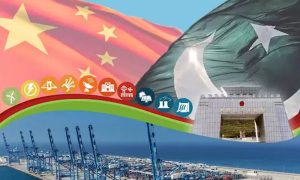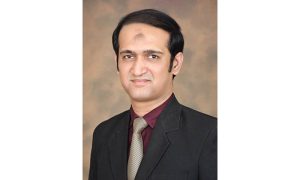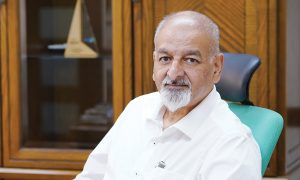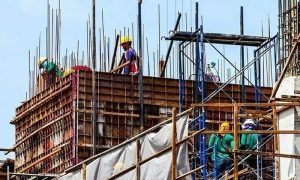By Engr. Mohammad Iqbal Mirza,
CEO, Green Leaves
In the last article we tried to look at Organization Behaviour in a conventional way. We the human beings differ from individual to individual, clan to clan, nation to nation and are geographically apart also. The organization behaviour relies mainly on human behaviour. Let’s see it from the view point that human beings are the center of everything happening in a society and the whole world.
What is considered behaviour and what is not? All definitions by social scientists are largely lacking and it is a great challenge to find a precise definition of human behaviour. The inherent reason is the creation of human beings that looks so similar even within a family, yet so different in different situations. Human beings physiological needs and mental ability of finding reason and logic differentiates him from other creatures.
Human’s behaviour is the potential and expressed capacity to carry out or cope with expected physical, mental and social needs or obligations during different phases of Human life. It includes prenatal life, infancy, childhood, adolescence and adulthood. We, on daily basis, are witnessing behavioural changes in people interacting with us. The reasons on times, we are ourselves; and on other times are the opposite sides active personal reasons or stimuli affecting the change in human behaviour of both sides.
Human Behaviour is on a constant change from childhood till the last day – the death. In his entire life span human being passes through various stages of needs, learning and experiences which modifies his behaviour. The changes in human behaviour owe to the environment where he is raised, input he gets and responses he builds on these inputs. Quran in Surat Al-Hadeed has beautifully portrayed the human behaviour at each stage he goes through.
“Know that the life of this world is amusement and diversion and adornment and boasting to one another and competition in increase of wealth and children.”(57:20)
Childhood is Human being first phase of life which is playful for joy and amusement. Every new thing is novel and learning, no duties and no responsibilities. The second phase is of adolescence, an era of adornment, charm beauty and garnishing attractiveness. The attention is more focused on dresses and self-projection to appear more and more handsome or beautiful in the eyes of his friends and family. Then comes the third phase where Human being gets into practical life – marriage, chooses career as a businessman or a professional and endeavours to excel in it, amasses money, builds beautiful home, buys expensive cars and other luxury items to live a comfortable life. When he has achieved it, it is a matter of pride for him to boast off his riches. Quran describes it as “Boasting among themselves”- a change in behaviour. Lastly in the fourth phase of his life Human being is not happy only with his own success in business and as a professional. He looks to build the career of his children, he wants them to be elated and distinguished individuals in their self. All his personal success fizzles out and appears in tatters if his children stray in wilderness.
Human growth both physical and mental is a slow process, both of these run side by side and for both the environment and resources available contribute in development and maturity of his thinking connected and relevant to him. Survival is the basic instinct of every living organism and human being has survived through all the harsh and unfavorable conditions over ages to reach at the present stage of development, and is continually managing his needs to make his living comfortable.
The behaviours are changed gradually and the best practical demonstration of its understanding is our “Holy book Quran Message” completing in 23 years. The Arabs were a perverted society indulging in all kind of evils, so to change their thoughts, beliefs, attitudes and perceptions, Allah SWT used evolutionary method instead of revolutionary. Human psychology is best known to Allah the Almighty, so a step by step process was the best to across and sink the message in human psyche with ease. We know how strongly the message of Islam was confronted by the then hierarchy in Arabic peninsula. Social scientists and psychologist also believe that gradual changes are often long lasting and more persistent. Organization Behaviour is a sum of its employee’s behaviour and in order to bring into one fold organizations make policies and lay code of conduct to operate business and run their day to day affairs.
We, Human beings, have unending string of needs, without some we cannot survive and do survive without others. We have inherent element of fear, anger and mercy and all these come to the forefront in certain situations which become a stimuli for our responses called behaviour. In all our responses the thinking process is fully involved. We often see that some people temperament is more agitated than others. It has reasons – the upbringing, the environment, the learning process, the knowledge itself and doctrines built over time. The social status gives a power to us embedding traits like proudness, exuding power, exploiting weaknesses of others culminating in deterioration of whole society.
In Organizations the possessed behaviour of people is tamed and asked to exhibit in a direction which promotes Organization’s interests. This demand of changing behaviours is not only in the interest of Organization, but also the people who are part of it. If an organization draws a policy and the people act contrary to it, the resultant yield will be not as anticipated to achieve the objectives. The top hierarchy has great responsibility to follow and implement the rules and regulations inspiring the workforce for greater yields and output. Quran says: “O ye who believe! Why say ye that which ye do not?” Organizations need harmony in their sayings and actions. Organizations need to ensure consonance in their written code of conduct and actions of all employees.
We all, as human being tend to avoid unpleasant conditions or situations, so do contravene the written or laid out procedures. It is against harmony, which is in the larger interest of all individuals. The behaviours are learned and adopted from childhood and it is on continuous change according to our needs, obligations and situational demand. According to Quran we, the human beings should be proactive and responsible; and this demands a change in the line of divine direction. The change meant here is a positive change, the change and motivating employees to amend their behaviours to achieve organization objectives is what is required by everyone in the organization. The organizations are made up of people from different ethnic and cultures; their behaviours are therefore different. When working together self-restrain is required to shape or express their behaviours in accordance with organization’s objectives. Language is the first expression of our restrained behaviours and then our actions. Our religion has taught us to practice the trait of restrain by fasting. Quran says: “O ye who believe! Fasting is prescribed to you as it was prescribed to those before you, that ye may learn self-restraint” (Al-Baqra: 183).
Here Allah wants us to change or amend our own responses. Self-control helps in resisting temptation, refocussing attention, altering a mood or emotional state, overcoming fatigue and other ways to change our behaviors and emotions. It is regulating ourselves which contributes greatly in making human behaviour diverse and flexible. It also increases the capacity to endure and amend our behaviours, because without capacity no moral rule can work. Self-restraint and self-regulation helps in realizing our erratic actions and enabling us to change them.
Self-accountability followed by self-regulation is a principal trait in fostering virtue and virtuous behaviour. We human beings are prone to distraction by whatever is enchanting, alluring and love indulgence in glamour and joy. We indulge in overeating despite being aware that it is not good in any way. Laziness and irrational desires overcomes us. The self-control and sel-regulating our behaviour is very important in saying no to inappropriate impulses that can override and astray us from the right direction in reaching our destination. In regulating our behaviour, we shall be prudent enough because wrong decisions expose us to long term risks and implications that we may not be able to undo.
Islam stresses on justice. Justice is not confined to the court of law only. In our daily lives we need to be judicious, for instance in following rules and regulations of organization we work for. Our behaviour is not only words, it is more a display of our actions. Justice asks us not to follow our personal inclination, but what is right and forego personal benefits in the larger interest of wholesome objective. An unjust behaviour at home, in organization, society or at national level is injurious and cause of multi-dimensional problems. Allah SWT doesn’t like going beyond limits rather advises us to stay in moderation in every respect. The ability to refrain from excessiveness needs self-control; fortitude and perseverance is to remain resolute despite adversity, it means being resilient. The courage or firmness demands self-control to overcome the desire to compromise and thereby escape one’s suffering.
Human beings love to find source of pleasures and satisfaction, his ability not to hurry is exercising self-control. Similarly, poor behavioral self-regulation often leads to impulsive display of anger resulting in poor thinking and impaired judgment. This erratic behavioral often leads to interpersonal conflicts, issues at work place and numerous other issues. The poor self-regulation creates multitude of interpersonal, family related and legal issues. Quran’s emphasis on learning self-regulation skills can bring lots of positive behavioral changes in people to resolve significant implications in their lives. Self-regulation is a skill that can be learned. It is very often observed that children learn poor self-regulation from their parents, because they are keen observer and unfortunately neither we read Quran to implement it in our lives nor instill positive characteristics in our children to become a responsible individual of society.
In management assertiveness is advocated as a very positive characteristic; there is no doubt in it, but we have seen assertiveness turning into aggressiveness. Why it happens, because instead of expressing our ideas, opinions and true feelings politely, we try to dictate and hurt people by infringing upon their rights. Aggressiveness by time socially isolates us, Quran likes harmony and unity in society. Self-control and ability to win people support with reason has been demonstrated by our prophet peace be upon him in his preaching message. It is very much desired to raise voice against injustice in an affirmative and assertive manner. The prophet peace be upon him has been resilient in denouncing the idol-worship in his time and assertive in voicing message of Allah SWT revealed to him, the Quran. We human being are not born with skill of assertiveness rather has acquired it through learning and experience.
There are three biological reason of human behaviour: Self-preservation, the reason for self-preservation- reproduction and methods to enhance self-preservation, reproduction-Greed.
Human being naturally likes to survive or continue his physical life, it includes his mental and economical health also. History does tell us that human being has resorted to cannibalism when they run out of food. In order to succeed in continue living human beings have desire to survive long enough to pass on their genes to offspring, because living with death-wish invites quick death. Human being of today has descended down on the basis of their ancestors this desire. Our desire to stay alive is an instinct built in our psyche by our creator. We therefore look for all those elements around us that increase our chances of survival, such as, food, water, medicines, education, entertainment, healthy environment and rest periods to allow our body to repair for all the wear and tear it goes through.
Alternately, we try to avoid all that which reduce our chances of survival and failure in the context of our subject. The iron seeking bacteria moves towards magnetism, Antelopes migrate hundreds of miles in search of new pastures and human being bows down in front of a tyrant to avoid killing or withstands torture. Human beings are surviving in extreme weathers – ambient temperature falling to ± 50 C° or in some place more. The desire to stay alive is a selfish instinct, but this instinct has brought human society to present stage of development.
The quotation “Survival to the Fittest” we all refer to actually means anyone who is fit, will survive. In organization behaviour individual’s behaviour if not framed within organization objectives will rely on this quote, always being misquoted. Anyone who has all those attributes in a given environment will succeed in surviving. A niche position within an environment calls for certain attributes to exploit that environment, therefore organization behaviour is a composite of all individuals associated with the organization and if it takes a niche position the survival and life span of organization is extended. Niche position of organization is doomed to alter due to sociopolitical environment and technology advancements.
We human have a brain; and therefore are different than other living creatures in responding to a stimulus, because of our ability to perceive and consciously change our respond. This change in behaviour is a strategic change and strategy is carved and applied not only to succeed but survive longer than others. The physical stress at work places cause ulcers, headaches and nervous breakdowns. This in turn asks to change behaviour, for instance being scolded by the manager, the employees says, “yes, I understand” and goes back to work probably muttering uncomplimentary comments under his breath.
In organizations employees can alter, rather than merely adapting to the organization environment to enhance their chances of survival. The self-preservation is much more complicated proposition due to complex needs of our society. The continuous thrust of inventions has altered every aspect of our life to survive longer with quality and comfort. The beviour of organization hinges upon economics, the scope of which has extended beyond food, clothes and shelter.








